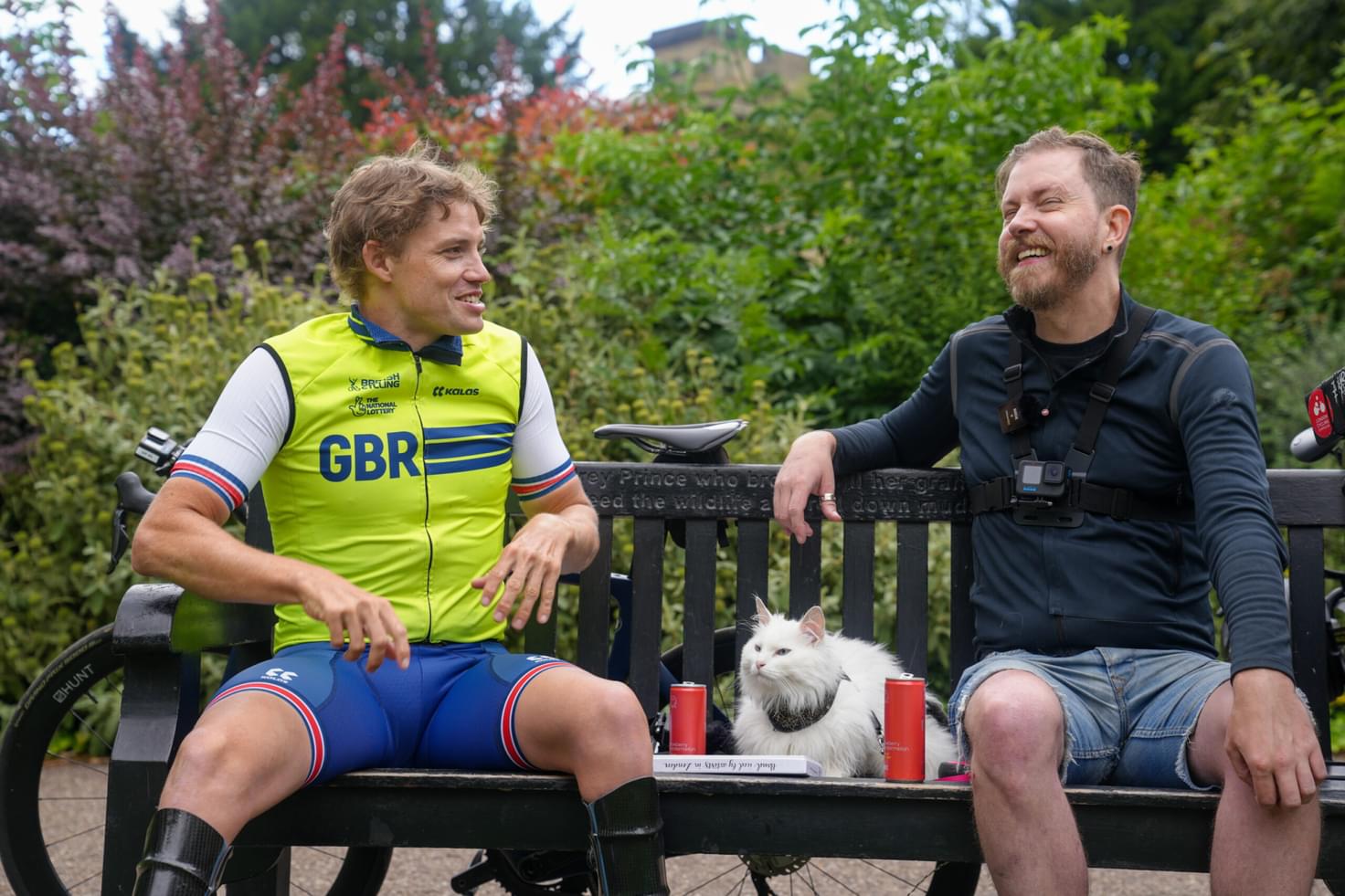
Words by Blyth Brentnall
In the next part of their cycling adventure, Travis and his deaf cat Sigrid met an inspiring Paralympic cyclist, Ben Watson.
When he was 14, Ben was diagnosed with Guillain-Barré syndrome. He overcame this health challenge and went on to become a double Paralympic champion in Tokyo two years ago.
Today he supports GAIN, a small charity supporting people with Guillain-Barré syndrome.
In this latest episode of the Smiley News series, Travis and Sigrid’s Charity Rides, the cat-owner duo heard from Ben about GAIN’s important work.
“Charity, for me, means being able to help people who need a bit more help,” Ben told Travis.
Brilliant! Tell me more.
Ben explained how Guillain-Barré syndrome is a rare disease that affects your central nervous system. He discovered he had it when he returned from holiday in Egypt and became severely ill, spending five months in hospital.
But Ben bounced back from this experience, buying a mountain bike aged 16 and going on to become the successful Paralympian he is today.
For him, cycling means everything.
“It’s not just a sport, it’s freedom as well,” Ben said.
The pair talked through Ben’s experiences and the importance of charitable work, enjoying the cycle ride despite the bad weather.
As Ben and Travis chatted, a very soggy Sigrid watched the rainy scenery from her basket at the front of Travis’s bike.
Watch the full episode here. Later episodes will be released every Tuesday at 12pm till mid-October.
Charity check-in
At Smiley Movement, we like to elevate the work of charities across the world. Here are three charities whose causes align with the themes in this article.
GAIN. They provide specialist support for people with the rare disease, Guillain-Barré syndrome. Learn more here.
Cancer Research UK. This charity provides information for anyone affected by any kind of cancer. Support them here.
Alzheimer’s Research UK. An organisation funding research into cures for dementia. Find out more here.
This article aligns with the UN SDG Good Health and Wellbeing.